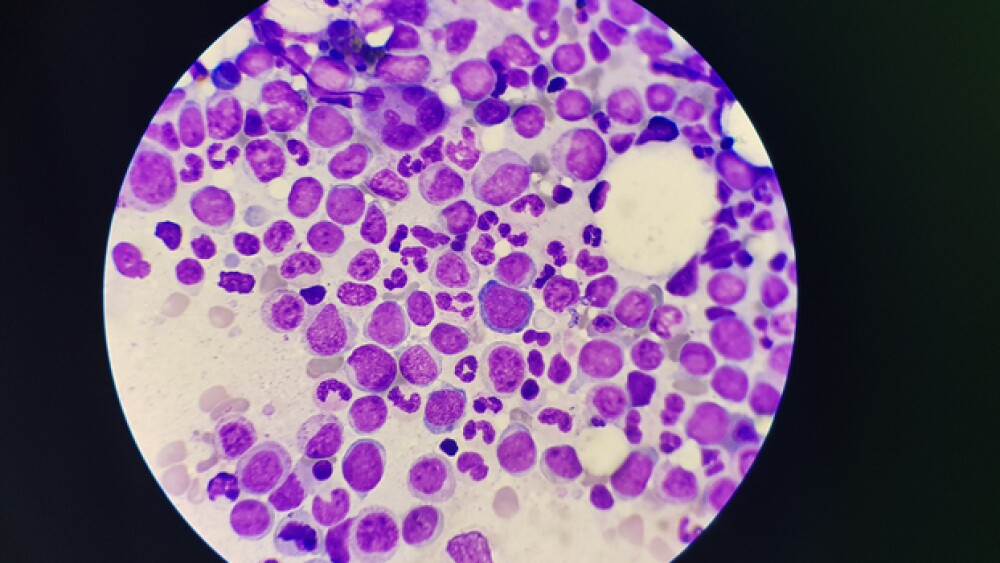Geron announced Wednesday positive topline results from the Phase III IMerge trial evaluating the telomerase inhibitor, imetelstat, in lower-risk myelodysplastic syndromes patients.
Courtesy of Getty Images
Geron announced Wednesday positive topline results from the Phase III IMerge trial evaluating the telomerase inhibitor, imetelstat, in lower-risk myelodysplastic syndromes (MDS) patients who are relapsed, refractory or ineligible for erythropoiesis stimulating agents. MDS is a heterogeneous group of bone marrow disorders.
Armed with these positive trial results, company representatives said they would seek FDA approval for low-risk MDS later this year.
The company also has plans to file for imetelstat’s approval in the EU in late 2023. If approved in either region, imetelstat would be Geron’s first commercial-stage product since its founding in 1990.
Although imetelstat would compete against Bristol Myers Squibb’s Reblozyl in this setting, the drug could still generate more than one billion dollars in annual sales, said CEO John Scarlett, M.D., in a statement to Reuters.
A key to the drug’s commercial success will be its utility as a treatment for MDS patients with high transfusion burden. Bristol’s rival drug exhibited a marked drop in efficacy in this patient group in its Phase III Medalist trial.
Geron previously licensed imetelstat to Johnson & Johnson’s biopharma subsidiary, Janssen. However, the healthcare behemoth returned the drug’s developmental and commercial rights to Geron in late 2018 following a strategic portfolio review.
Geron, as a result, had to trial the drug without the benefit of a deep-pocketed partner.
For stockholders, it’s been an arduous four-year-long wait for these positive topline results. To wit: Geron stock gapped by 54% in pre-market trading Wednesday.
Geron’s CEO said the findings hold much promise for lower-risk MDS patients.
Imetestat may help people to live without the burden of transfusions, said Scarlett in a prepared statement.
The trial met its primary efficacy endpoint of 8-week transfusion independence (TI), an essential metric for prescribers. It also met a key secondary endpoint of 24-week TI, demonstrating the statistically significant and clinically meaningful benefit of imetelstat, with no new safety signals and safety results consistent with prior imetelstat clinical trials, according to Geron.
In 2024, Geron expects to announce imetelstat’s topline results from the ongoing Phase III IMpactMF trial in relapsed/refractory myelofibrosis. The company is attempting to position the drug as a later-line therapy for myelofibrosis patients who have progressed on the current standard of care.





